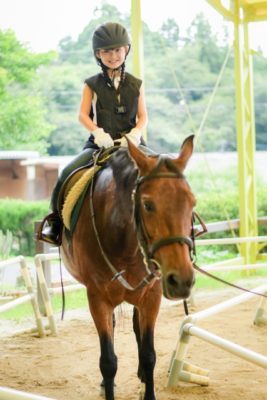You Tubeで話題の「ただよび」の英語。受験はもちろん、基本を見直したいという方にも見られているのではないでしょうか。わかりやすい説明で勉強になるのですが、パターンプラクティスをするには例文がまとまっていると便利だなと思い備忘録を兼ねてまとめています。
ただよび
完全無料で受けられるオンライン大学受験予備校として話題の「ただよび」。
ただよびの英語は、TOEIC満点80回以上の予備校講師「もりてつ」こと森田鉄也さんが教えられています。文法についてCD付きで学べる本も執筆されています。
ただよびの各放送回で紹介された例文や文法書をもとにした内容について、以下にまとめています。
第80・81構:可算名詞・不可算名詞
不可算名詞
境界線がはっきりしないものは不可算名詞のことが多いです。
advice, progress, information, news, proof, evidence, knowledge
・I have some advice.
・I have some progress.
・I have some information.
・I have some news.
・I have some proof.
・I have some evidence.
・I have some knowledge about science.
money, furniture, bread, work, homework, milk
・I have some money.
・I have a lot of money.
・I have some furniture.
・I have some bread.
・I have some work.
・I have some homework.
・I have some paper.
・I have some milk.
不可算名詞も意味によっては可算名詞になる場合があります。
・That’s a great work.(「作品」という意味の場合)
・I have some assignments. (「作品」という意味のassignmentも可算名詞)
・I have a paper. (「新聞」という意味の場合)
・I have a milk. (「パックに入ったミルク」の場合)
可算・不可算が紛らわしいもの
可算 :machine, poem, scene
不可算:machinery, poetry, scenery
・John didn’t know how to operate the machines.(可算)
・John didn’t know how to operate the machinery.(不可算)
・John likes to write poems.(可算)
・John likes to write poetry.(不可算)
・Those were beautiful scenes.(可算)
・That was beautiful scenery.(不可算)
複数扱いの不可算名詞と可算名詞
・Many people are here.(不可算:人)
・Many peoples live in this country.(可算:民俗)
・Many police are here.(不可算)
・Many police officers are here.(可算)
・Many cattle are here.(不可算)
・Many cows are here.(可算)
・Our staff are here.(不可算)
・Our staff is here.(不可算)
・Many staff members are here.(可算)
単複同形の名詞
単数形でも複数形でも同じ形をとる名詞があります。
・Many fish are in this aquarium.
・I caught a big fish.
・Many sheep are on this farm.
・I bought a sheep.
a means、a series、a speciesなど、sが付く単複同形の名詞もあります。
・Given away samples is a good means of marketing.
・We submitted a series of documents.
・We discovered a new species.
意味により可算・不可算が異なるもの
・I saw a hair on the ground.(可算)
・I’ve lost a lot of hair.(不可算)
・I ate a lot of fruit.(不可算)
・I ate a lot of fruits.(可算:たくさんの種類の果物)
・I ate a lot of fish.(不可算)
・I ate a lot of fishes.(可算:たくさんの種類の魚)
・John had lunch with Susan.(不可算)
・John had a delicious lunch with Susan.(可算:形容詞がつくと可算になる)
第82・83構:代名詞
anotherとthe other
anotherは「不特定の別のもの」、the otherは「特定の別のもの」を指します。
・Ken has two brothers. One is older, and the other is younger.
・I have three pens. One is red, another is block, and the other is blue.
otherとthe others
otherは「不特定の多くのもの」、the othersは「特定の多くのもの」を指します。
・Some employees work in marketing, others in sales, and a few in accounting.
・Our company has three divisions. Some employees work in marketing. Others work in sales. The others work in accounting.
another・every
anotherやeveryは後ろに時間表現や距離表現を置くことができます。後ろに置く時間表現や距離表現は単数形・複数形のどちらでも可能です。
・We were supposed to stay in Japan another three months.
・I need to swim another thirty meters.
・Give me another thirty minutes.
・every thirty minutes
one/that・those/this・it
oneは「不特定の1つ」を指すときに、itは「特定の1つ」を指すときに使います。
・I need a pen. Can you buy one for me?(不特定の1つ)
・I need a pen. Can you pass it to me?(特定の1つ)
oneは前からも後ろからも修飾できます。
・I don’t like this shirt. Can you show me another one?
・I need a pen. Can you pass that one to me?(oneも特定として使うことができる)
・I need a new one which is cheaper.
thatやthoseは後ろから修飾できますが、前からは修飾できません。
・The population of China is bigger than that of the U.S.
・Those who speak Spanish are encouraged to apply for this position.
thisとitは前からも後ろからも修飾できません。





コメント